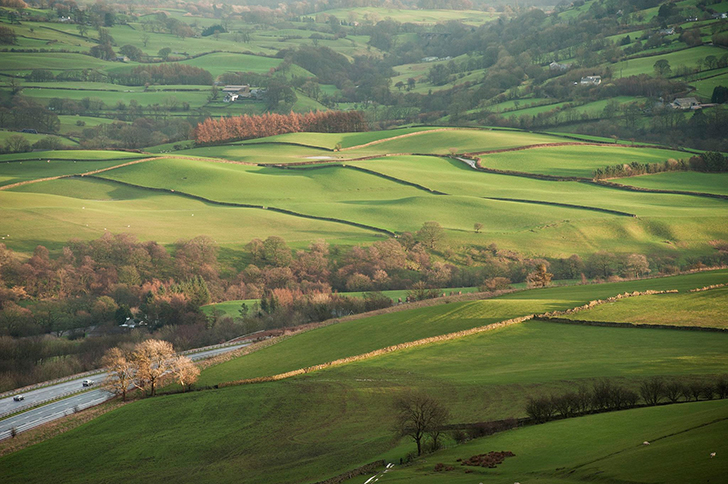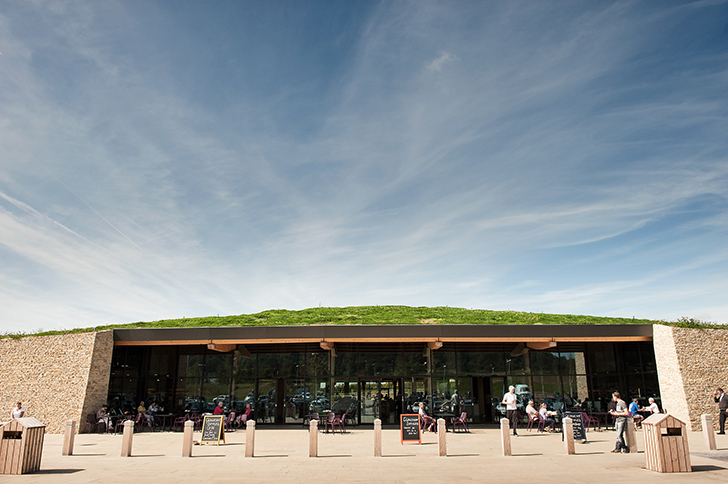The Questions We Asked: The Westmorland Family
The Questions We Asked goes behind our work and gives an insight into the issues or opportunities our clients were grappling with prior to briefing us. Sarah Dunning, CEO of The Westmorland Family, takes up the thread:
We’re a second-generation family business. Mum and Dad were and still are hill farmers just outside Tebay in Cumbria. In 1967 the M6 was being built through the corner of their farmland. The government decided there was to be a motorway service area at this point and my parents, in their 30s and keen to get on, made a bid to build and run it. They won the bid and in 1972 they opened Tebay Services northbound.


Over the next 30 years they grew the business and in 2005 Dad handed over the reins to me. The challenge for me was to retain the DNA of the business whilst redefining it for a new generation. It is easy to feel between the devil and the deep blue sea – you don’t want to be the one that destroys the work of the past generation but you know you must be bold if you are to move it on.
We formed a new leadership team and agreed that we wanted to grow and that another motorway service area seemed like the logical step. It took seven years to plan but we finally opened the northbound side of what became Gloucester Services in May 2014. So in the last 10 years we have gone from a local Cumbrian business employing 450 people to one with businesses 300 miles apart, employing 1,000 people.
One of the decisions you have to make as a business is when to bring in external expertise. This can be difficult, especially when it relates to your core brand, but that’s sometimes when you need it most. In 2012, prior to opening Gloucester Services, we were discussing problems that were strategic but also creative. Squad were a small and young organisation, they knew our business and had some empathy with it and they came with both a strategic and creative background. And so we set about working together.
There were many questions at that time, which tended to pose themselves in the order that the problem arose. One of the first ones was what to call our new services in Gloucestershire, partly because we had to invest a lot of money in motorway signage. However, in trying to answer one question, we often found that we couldn’t do so without first answering a series of other questions. It became apparent that the initial question wasn’t always the most important one. Often there was a question behind the question that we needed to address first.
It became clear that the most important first question to resolve was what the brand stands for. Our ethos, which sat at the heart of the business, was very much about being a Cumbrian family business that had grown out of the farm and remained tied to it. However, we had to square this with our desire to grow the business and specifically with the opportunity we had to build a business in Gloucestershire, which inevitably would take us out of our own Cumbrian farming community. This dichotomy extended to many aspects of our business – our product offer, our buildings, our branding – so we had start with some fundamental questions.
Should the buildings in Gloucestershire ‘feel’ like Tebay Services? Should the food be from Gloucestershire, or should we bring some from Cumbria?
We knew our businesses couldn’t be ‘rolled out’ as Costa, Pret and M&S are. It’s much harder to grow a business this way, because each business has to be bespoke. It also means we’ll never grow to be a giant as some businesses do; but perhaps that’s a good thing – there is something to be said for staying smaller and true to purpose.
However, whilst Gloucester Services should have its own personality, as distinct as Tebay Services, we wanted the customer to feel that they were still siblings, albeit not twins. We had to consider how the buildings and landscape should read back to our identity. We wanted to capture the essence of our Cumbrian businesses but re-express it in an appropriate way for a new build. So whilst both feature heavy timber and stone, and feel quite earthy in their way, we exchanged the agricultural and rustic approach of Tebay, for a more contemporary and sleek design.
So how could we create a brand and branding that ties together our businesses with a recognisable thread, yet preserves that character and independence of them?
I have always believed that a business’ ethos should be the compass for every initiative and every innovation you undertake. Only by doing this will the customer understand what you are about. It is not enough to articulate your ethos (even if you can) but you have to deliver it through every touch point because some things are better felt than articulated.
Delivering it through every touch point is quite involved for us because we have around 100 acres of space, about 15,000 product lines and 1,000 people working in the business. We have 10 million customers a year through our businesses and our aspiration is that each one will leave with a sense of what we are about. I have no doubt that we regularly fall short of this aspiration, but we have to keep on trying.
So how could we make sure our branding was present but with a light touch – not like a rubber stamp?
To see how The Westmorland Family’s questions were answered, read the case study here.
Sarah Dunning and RG gave an extended talk based around this article at the 2016 Family Business United Annual Conference and the Cumbria Family Business Conference at Rheged the same year.
Subscribe to Squad

Get our annual printed newspaper plus our email digests full of inspiration, thoughts, tools and the interviews.
Subscribe
POV*: A purpose or essence won’t build a brand. Telling a good story will
First brands were told they needed a pyramid, onion or key. Now it’s all about having a purpose, big idea or finding your “why”. Tomorrow it will be something else. There’s often a belief that defining a brand positioning in the right way is the key – pardon the pun – to success. It isn’t. There is no magic construct. The way you implement a positioning is far more important.

POV*: Build a marketing culture, not a department
Great brands used to be built with blockbuster campaigns. The next generation of global brands are being built entirely differently. Their language is not reach and frequency but customer experience and new ways of thinking such as growth hacking. Understanding not just what they do, but how they do it, is central to unpicking their formula. To emulate them, marketing strategy must move from being the output of a department to an organisation-wide culture.


